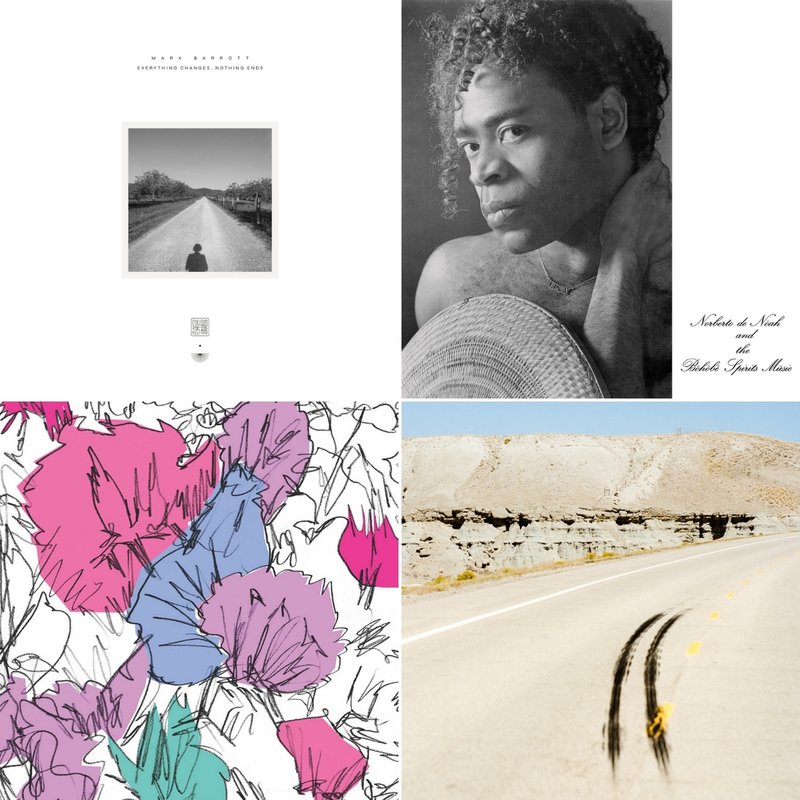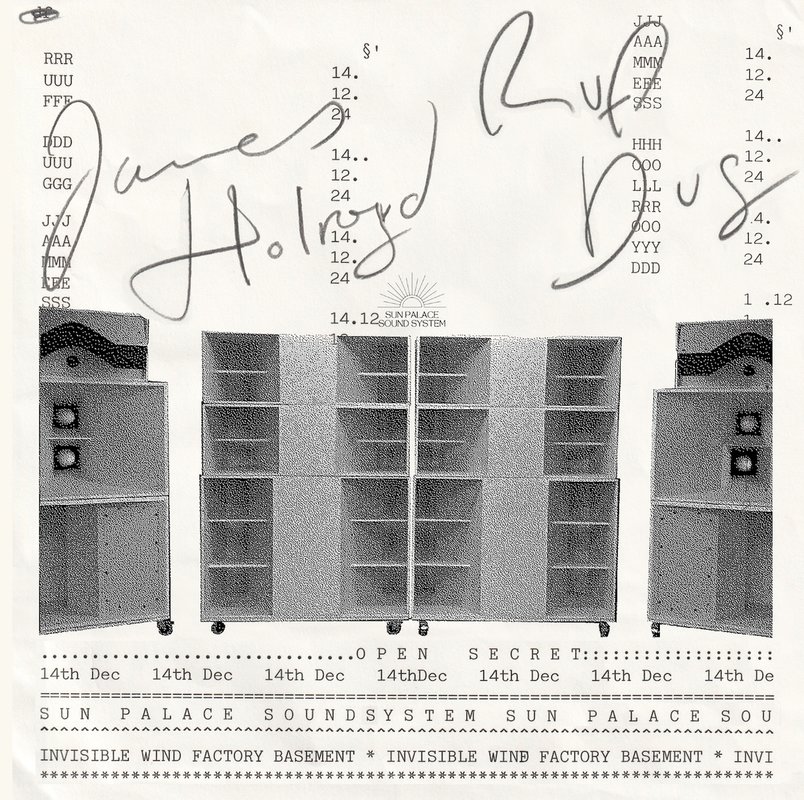
It's Friday the 20th of December in Wellington, New Zealand. I'm sitting in a cafe sipping coffee and cramming as much in as I can on what should really be the last working day of the year at my end. However, whether things will play out like that or not remains to be seen. Anyway, before I sign off for 2024, here are some blurbs on a few recent releases that very much fit the Test Pressing bill.
Mark Barrott, one of the true living masters of sunset music, returns with "Everything Changes, Nothing Ends" - a profound musical meditation on the patina of love in the afterglow of loss. Rendered in an expansive, orchestral style, Barrott adopts the mode of a film score composer, crafting a rippling, emotionally tumultuous soundtrack/sound depiction of the twenty-plus golden years he spent with his late partner, Sara Kult-Smith (1968-2023). This is a love story that began on an aeroplane, playing out through Berlin, Northern Italy, South America and rural Ibiza before continuing to endure inside Barrott's heart and mind.
Dressed up in song titles like "Pandora" and "Mono no aware", "Everything Changes, Nothing Ends"'s eight compositions evoke the feelings of the endless and ever-changing cycles and seasons we exist within for beautiful and fleeting moments. Everyone has their season. We all have our day in the sun. To borrow a phrase from Ocean Vuong, on Earth, we're briefly gorgeous.
How about this? Canela en Surco and Urpa i musell slip in at the eleventh hour with the first-ever reissue of "Norberto de Nöah and The Böhöbé Spirits Müsic" by Norberto de Nöah. For those unfamiliar, in the early 1980s, Nöah moved from his home island of Fernando Po (now known as Bioko) to its former colonial capital, Madrid. While studying dramatic arts, he created the mixed Spanish-African band Nohkis, who became one of the first African music groups to record in Spain and won rave reviews while inspiring the La Movida movement.
Serendipitously, Nöah's rise dovetailed with a period in the mid-1980s when the European media, music industry, and public developed a taste for African music. This led to international success for King Sunny Adé, Salif Keita, Youssou N’Dour, Ray Lema, Touré Kunda, etc. By 1988, Nöah had created his own label, Kilimandjaro Productions and was ready to self-release "Norberto de Nöah and The Böhöbé Spirits Müsic".
Across the LPs lean six-track running time, Nöah sang and played all the instruments: a vast selection of organic instruments, a Yamaha RX-5 drum machine and a Roland D-50 synthesizer. In his compositions, he took the foundations of traditional Bubi music and reimagined it within the lexicons of American funk, R&B, Latin American music, African and Caribbean rhythms and the avant-garde. The results were staggeringly unique at the time. Thirty-six years on, they only sound more singular.
Brothers Mark and Clive Ives, aka Woo, the UK music duo with a perennial love affair with 1967, inaugurate the Music To Watch Seeds Grow By imprint with "Music to Watch Seeds Grow By 001: Woo (Sweet Peas)". As the title suggests, this playful twelve-part suite - a vivid melange of clarinet, guitars, percussion, and electronic elements - was recorded as an ode to Lathyrus odoratus, the humble sweetpea. This release is so music for gardeners coded that if you buy the cassette tape edition, you'll actually receive a small sachet of sweetpea seeds as well.
As playful as the soundtrack to an early semi-experimental Disney movie, "Music to Watch Seeds Grow By 001: Woo (Sweet Peas)" is a slippery shapeshifter of an album. While the music plays out, it's easy to imagine the changing of the seasons as those seeds grow into a climbing plant adorned by beautiful flowers.
As Clive puts it: “Much like nature, music is an ever-evolving process. With this project our aim was to achieve an unpredictable organic flow that still feels harmonious.”
Here's the topline from the PR for this one: Drummer-composer and multi-instrumentalist Valentina Magaletti’s explorative percussions join Afro-Portuguese artist Nídia’s singular beat-making for an exciting new collaboration in dance music. Impressively, "Estradas", released earlier in the year via the Latency label, doesn't over-promise. If anything, across nine supreme tracks that find the throughline between Afro-Portuguese, post-punk, mutant beats and the improvised-meets-programmed side of avant-club, Nídia & Valentina possibly overdeliver. Every time I listen to this record, I find a new favourite track within the mix. Often for new reasons.
Opening with the glossy minimalist synthesisers, digital squelches, and gently unfolding clockwork percussion of 'Andiamo', "Estradas" takes Philip Glass to Lisbon while simultaneously taking the Portuguese crew time travelling across the Atlantic to New York and New Jersey to hang out with Liquid Liquid and the 99 Records gang during the no-wave/dance-punk era. From there, the music shuffles, pulses and grooves through a dizzying array of shapes and forms. Always engaging, and never disappointing, "Estradas" is a special ride indeed.


